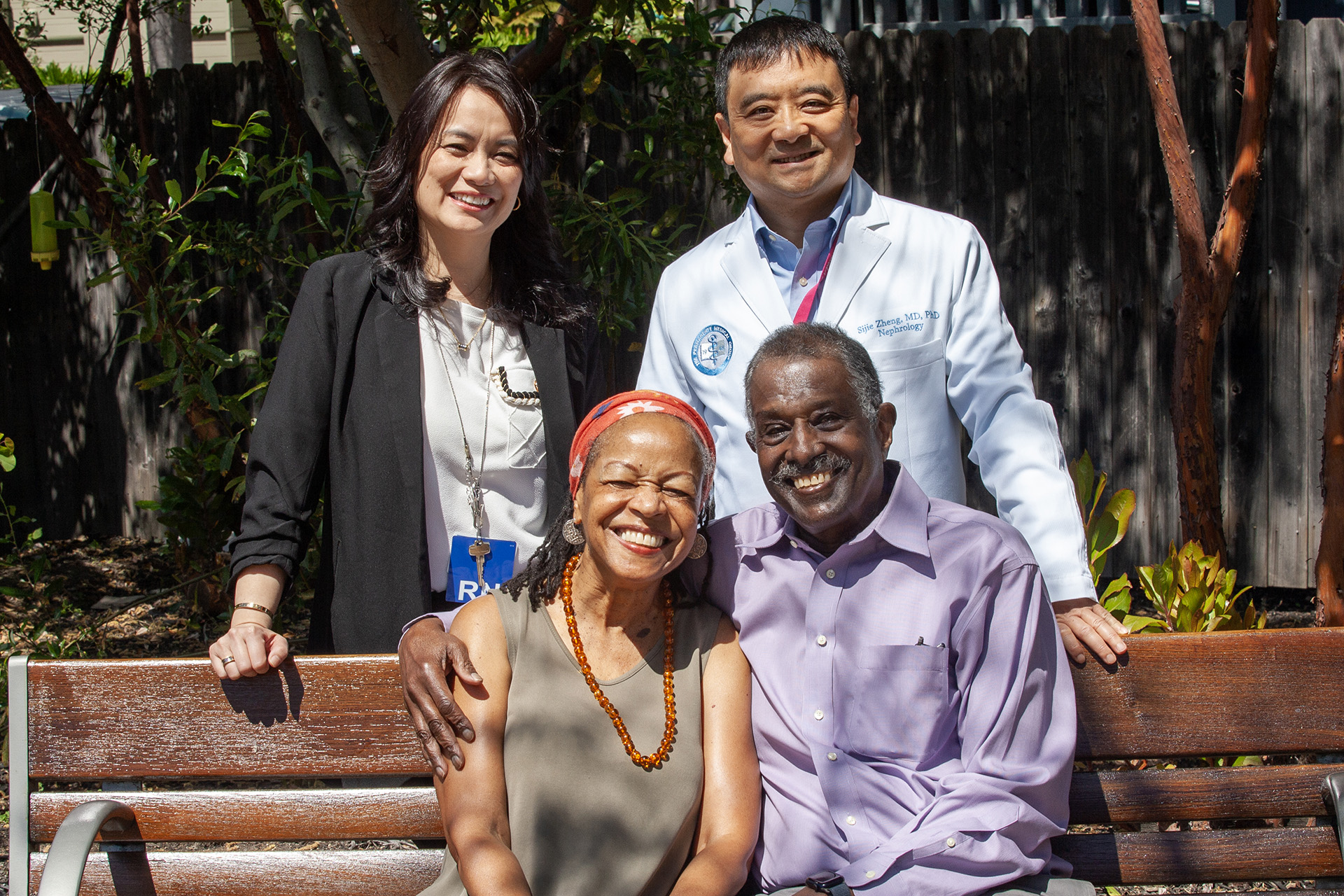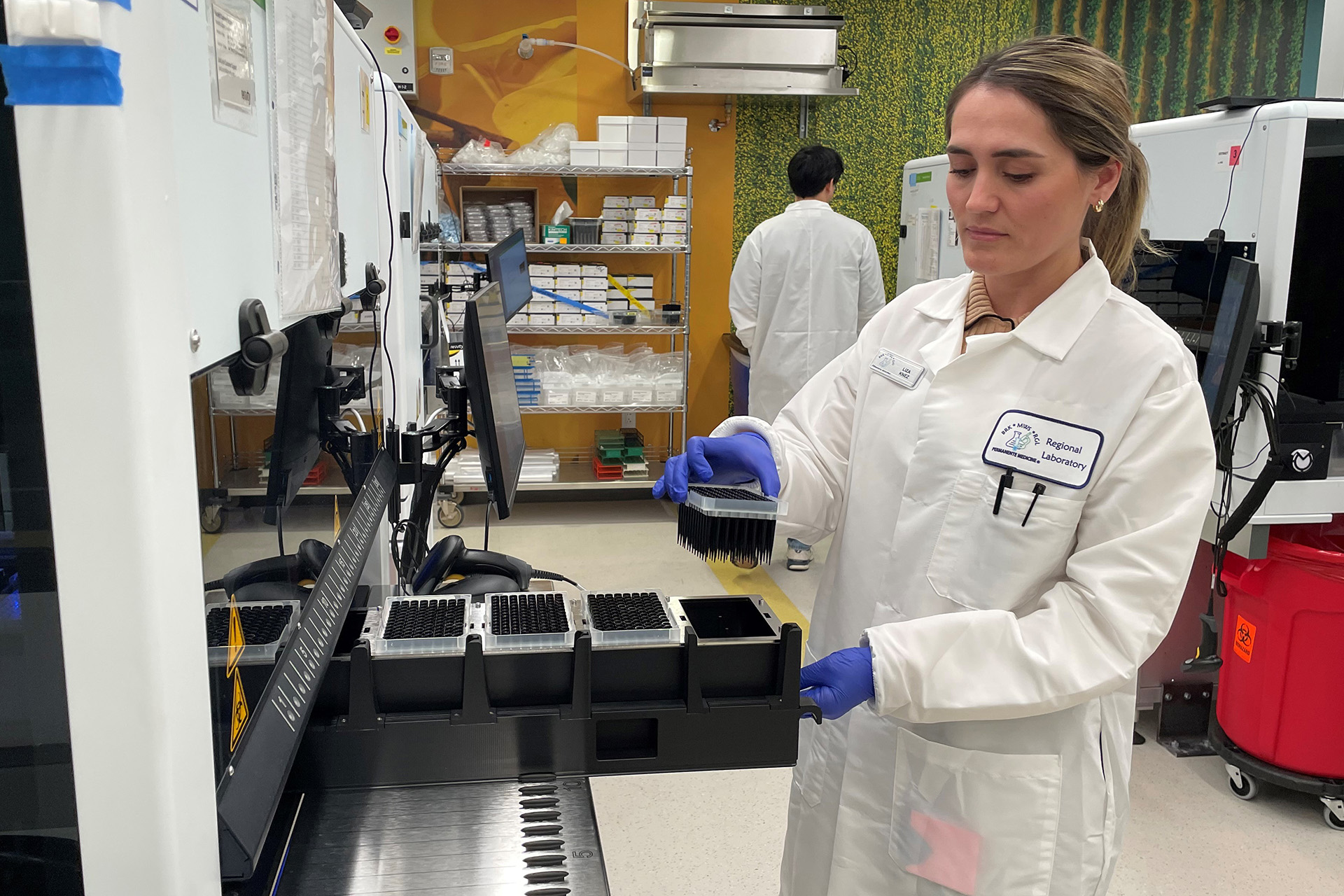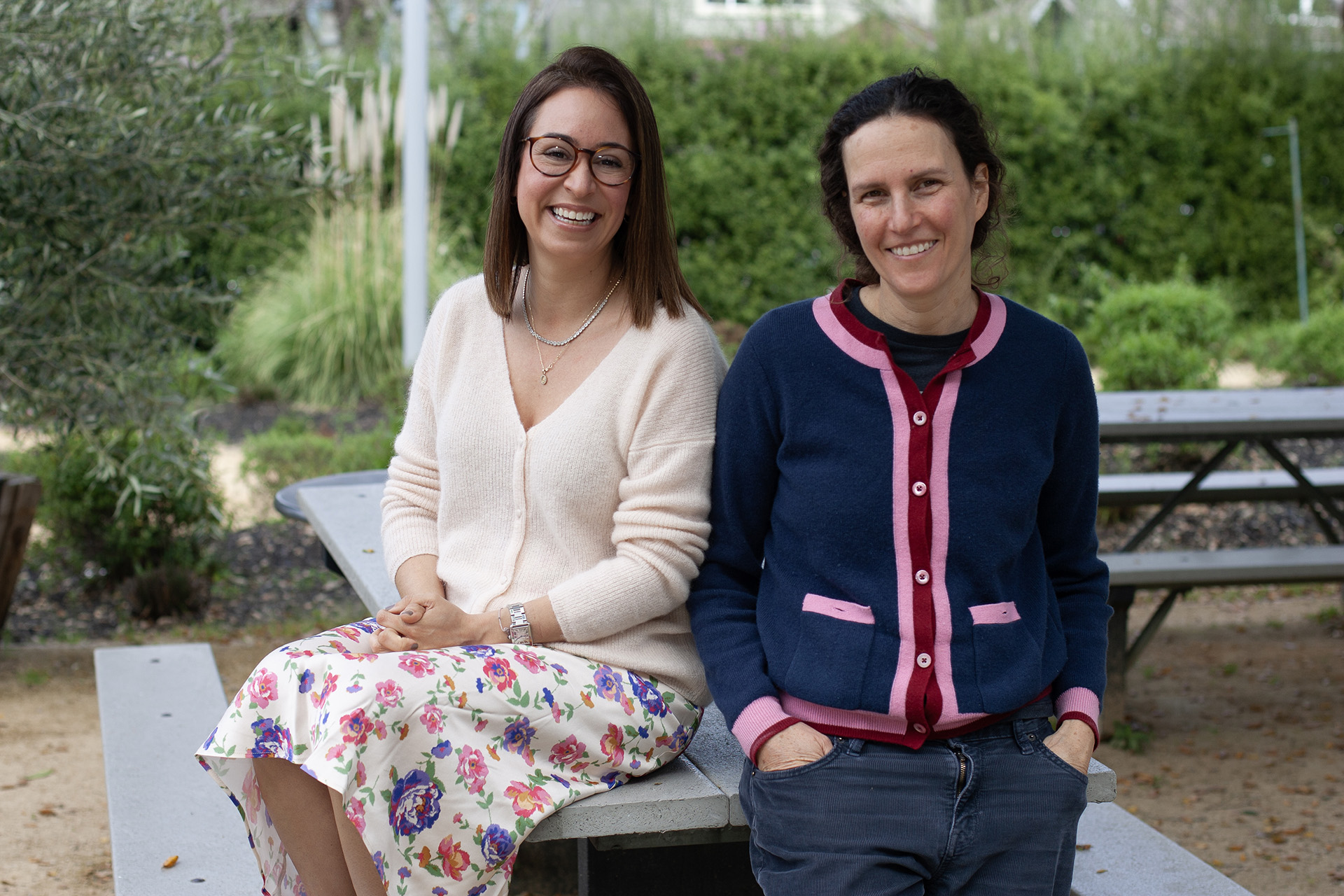In honor of 50 years of the California Newborn Screening Program, learn about Kaiser Permanente’s early warning system that helps protect the organization’s youngest patients from treatable genetic diseases. Meet the Newborn Screening Program team, left to right: manager Adlai Cummings-Abrams, DNP, MSN, RN; program secretary Gayle Sampson; and coordinators Elise Obolensky, MS, LCGC; Philbert Dela Pena, RN, MS; Dawn Banasiak, MS, LCGC; Pat McMahon, RN, MS; and Christina Hawbaker, MS, LCGC. Not pictured: Bryce Mendelsohn, MD, program medical director, and Leslie Manace Brenman, MD, sub-chief, regional screening and tracking.
Your baby has arrived, and you are over the moon. A quick blood test at the hospital and soon you and your infant are on your way home.
Most of us never think twice about that test.
But there are professionals at Kaiser Permanente who make it their job to run the results and, in rare instances, follow up with the family when a genetic disease is found that may harm the baby.
An early warning with resulting early intervention can improve or — in some instances — save a baby’s life.
How It Works
With approximately 42,000 tests annually, newborn screening at Kaiser Permanente Northern California is on a par in volume with some U.S. states.
By state law, all newborns delivered by a licensed birth provider must have a newborn screen after 12 hours but no later than 48 hours after birth. Fewer than 1% of families decline the test.
The test is a simple drawing of an infant’s blood by a lab assistant, nurse, or midwife, with each small sample placed on filter paper attached to a single-page form. After the sample dries and is sent to Kaiser Permanente’s regional lab, the filter paper is split along a perforation, with one side left for the regional lab and the other sent to the state genetic disease lab. The labs run tests in parallel, which screen for 83 genetic disorders such as cystic fibrosis and sickle cell anemia.
The criteria for the diseases chosen for screening includes significant frequency in the population; severe medical consequences; reliable detection; an existing intervention; and an improved prognosis with early intervention.
Meet the Screening Team
Kaiser Permanente partners with the State of California to run its Newborn Screening Program for Northern California out of Kaiser Permanente Oakland. In the rare instances where the lab results indicate a genetic disease, an alert is sent to the 6-member Newborn Screening Program team.
It’s the program coordinators’ job to contact the necessary medical specialists or sub-specialists needed to help the baby and ensure the family is contacted promptly. The specialists explain the genetic condition and the necessary confirmatory tests to the parents. Cases are followed until the condition has been ruled out as a false alarm or confirmed with treatment started. “A very important part of our work is to allay the fears of families,” said Pat McMahon, RN, 1 of 2 nurses on the team.
Another aspect of the job is managing the meticulous case recording and reporting to the State of California, as well as to field questions about newborn screening and emphasize the importance of the babies’ initial blood tests within the 15 Kaiser Permanente Northern California birth centers and three contracted hospitals.
“We’re tracking anywhere between 30 and 70 cases a day,” said coordinator Elise Obolensky. “We manage cases 7 days a week, 365 days a year.”
“Speed is our middle name,” said coordinator Dawn Banasiak, who explained that in some instances a very quick treatment for some diseases will diminish or even halt the disease.
The coordinators pride themselves on their relationships with their colleagues, many years of education and experience, and at times life-altering or life-saving service they provide to Kaiser Permanente’s tiniest and most vulnerable patients.





This Post Has 2 Comments
I was wondering when Spinal Muscular Atrophy screening will be added to the panel?
Screening for Spinal Muscular Atrophy (SMA) will begin in August of 2020